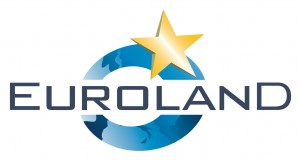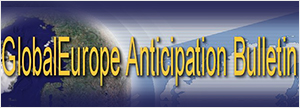One of the often cited weakest links in the American education system is the lack of international teaching, in history, languages, social issues and just about every other realm. When Americans do tend to study the rest of the world, we tend to focus on those events, moments, or programs that we created turning a deaf ear to many other noteworthy endeavors. The European Union is definitely an endeavor as such and it deserves our attention, yet its complex and ever-changing structure makes it difficult for Americans, and many Europeans, to understand.
As of 1998, the EU took an important step towards countering this trend. In both 1998 and 2001, Brussels approved funding for the Network of European Union Centers. These 15 centers are based on college campuses, bringing together groups of experts on the European Union. Although these experts teach and develop curricula for their respective universities, their efforts are by no means contained within their respective campuses.
{{Great Results so Far…}}
Herein lies the astonishing potential for the EU Centers; in the conclusion of the 2003 Impact Report it states that the Centers have, “successfully educated and impacted hundreds of High Schools and colleges across the US, re-shaped many professional training programs to include the EU and prepared next generation teachers at all levels who will educate and research the EU.”[[Check out the 2003 Impact Report for yourself.]] As the quote highlights, the two necessary roles for these centers are firstly to educate and secondly to perform research and communication (with the media, politicians, and businessmen thus enabling an articulation of the US opinion regarding EU matters).
{{But a Choice between Education and Research Must be Made}}
The problem with the EU Centers as they are currently organized is that each center plays both roles at the same time. All 15 are asked to be both educators and researchers, dividing resources across state lines and minimizing potential benefits that could be drawn from specialization. We suggest that the Centers be redistributed such that there is a clear split between the research/communication centers and the purely education-based programs, with an emphasis on education. In the end the EU will only become visible in the U.S. if it is studied by students. Thus it is in the interest of the EU to support academic activities above all else. Research should only be supported when it is needed for communication purposes. Other organizations and instruments do exist to implement research on the EU in the USA; the EU Centers are not made to replace or substitute them.
With this type of dichotomy, the centers would be able to be more autonomous, thus moving away from their dependency on the Commission’s funding hence increasing there collective ability to create dynamic change in EU studies in the US. Obviously, these new specialized centers would be connected via the larger network and as such they would still share certain resources.
Of course all EU Centers do not perform the same and herein we already have examples of certain programs specializing and thus outperforming their counterparts. Several have quite stellar records, such as the University of Pittsburgh and Johns Hopkins University; others have developed very large outreach programs serving the Centers’ objective of education and communication, such as the University System of Georgia.
{{The EU Needs to Strengthen and not Kill Motivation}}
Whether or not you agree with us on the need to split and specialize is not the most important of issues. One thing is for sure though, the current rule stipulating that within a short period of time EU sponsored programs must become completely self-sufficient and funded is going to be the death of the EU Centers. Too many programs started by the EU with the goal of bolstering the transatlantic dialogue are short-lived thus creating a ridiculous loss of money, time and resources.TIESWeb , which now operates with 100% on private funds, is the only project that remains from the 1990’s EU sponsored New Transatlantic Agenda, the rest having seeing there last days as the EU support dried up.
Today, through the EU Centers, there is an amazing opportunity to enhance the transatlantic dialogue and to promote interest and understanding of the EU in America. If the EU cuts the life-line to these programs, we have to ask ourselves what will happen in the next five to ten years? Our guess is that the programs will disappear in those schools where they are the least influential and those that work will be swallowed up by purely American projects, more EU money down the drain. It is now more than ever the time to re-infuse the EU Centers with a sense of importance, for people on both sides of the Atlantic.


 LEAP2040 Toutes les informations et archives Europe2040
LEAP2040 Toutes les informations et archives Europe2040


